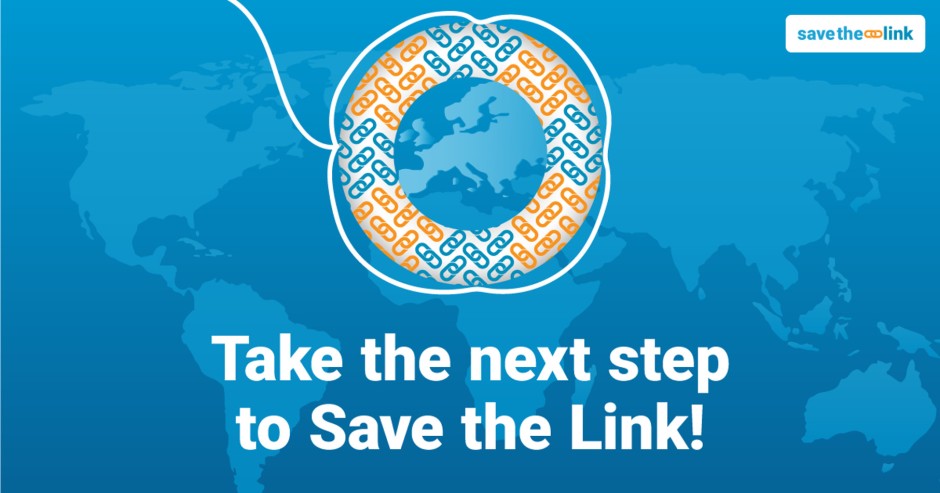The EU Commission and the terrible no good very bad idea
The European Commission continues to push forward with plans to reform copyright, but the idea of a link tax still won't die. Find out what the next step is in the fight to safeguard the right to link for Internet users everywhere.
Right now key decision-makers in Europe have renewed their attempts to drive forward the innovation-killing link tax (or “ancillary copyright”) that could harm the Internet forever.
Recent speeches from the European Commission (EC) sadly show that, despite all the evidence against it, they still want to push ahead with this flawed idea.
But the good news is we have one big chance to put a stop to this idea before it gets out of control. The EC have opened up a last questionnaire on the issue, making it the final step before they release the draft copyright legislation in just a few months. We want to make sure that the link tax doesn’t show up in that document at all.
Sign our statement to tell the Commission not to create laws which make the link tax possible.
We’re focusing on just one question: Will it affect Internet users? You can read our full answer here, but the simple version is Yes. Yes, of course it will. And it will screw the Internet up.1
After all, links are what empower users to discover great content, navigate the Web and gain access to information. If we don’t respond to this consultation, we know the publishing lobbyists will, and their voice will come out as the loudest.
What’s this all about?
The Commission is in the process of writing a new copyright law – and that could include “ancillary copyright’ rules that extend copyright to links and the snippets of text that accompany them. It’s a brazen attempt to allow anti-innovation publishers charge fees for business models that rely on links. It’s been called neighbouring rights, snippet tax, and ancillary copyright: but a rose of any other name, still stinks of a link tax.
The link tax hurts the media, and limits access to information.
Aggregators who cannot afford to pay the link tax will cease to operate. Without links, content will be unfindable online. Just think about the last time you wanted to read a news article and typed in the exact address where it lives in your URL bar. Can’t remember? That’s probably because it never happens. Regardless of where you live, your favourite news and media sites could disappear. This plan will create an advantage for entrenched anti-innovation news organisations, tilting the playing field further in their advantage.
The link tax hurts journalists.
Giving collecting agencies and huge publishers the power to make decisions about how their work is shared (for example, denying the choice to make your work creative commons) and giving publishers, not authors, the resulting cash.
The link tax hurts online innovation and startups.
Take Javier Sarda, who got in touch with us last year explaining how the version of the link tax that passed in Spain destroyed his innovative news aggregator, due to legal uncertainty.
If enough people sign our statement, to say that they are against ancillary copyright then the Commission will have to listen and drop the idea from the draft law.
For a huge impact you can also take the fullconsultation, using the tips and the answering guide that we helped to create jointly with a fantastic coalition of EU digital rights groups, including Mozilla, European Digital Rights Initiative (EDRi) and Copyright For Creativity.
The bottom line is this: these dangerous proposed copyright laws willhurt businesses, small news sites and Internet users. It will widen the gap between entrenched media giants and start-ups, and it will reduce access to information everywhere.
We have an opportunity to take action and make sure our voice is heard now.
Why is this happening now?
The European Union is in the midst of a huge copyright reform process. Many people are frustrated by the dysfunctional, outdated copyright laws we’re stuck with in the EU, and this has the potential to be innovative and exciting – updating copyright for the digital age and encouraging Internet users in all of their creative potential. The process even had a strong start with a proposal that really understands how the Internet works, drafted by MEP Julia Reda and supported by the European Parliament.
However, thanks to lobbying by big established media players, we may not just be trudging back towards status quo, but potentially falling face-first into an even more restrictive copyright regime (which means that things like babies singing karaoke and 3D sculptures of left-shark won’t be the only things cut off in their prime).
There are many concerning issues in this wider debate – freedom of panorama, ‘copyright police’ enforcement, and websites being held liable for the content of rogue commenters. How this law turns out will have a massive effect on the future of the Web.
That’s why we’re campaigning on the link tax, a proposal that keeps showing up, despite being shot down by the Internet community over and over again. Hyperlinks are the roadmaps of the Web, and if they start disappearing, so will our access to information, and the Internet as we know it.




 Take action now!
Take action now!
 Sign up to be in the loop
Sign up to be in the loop
 Donate to support our work
Donate to support our work